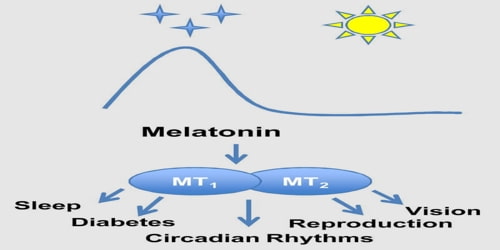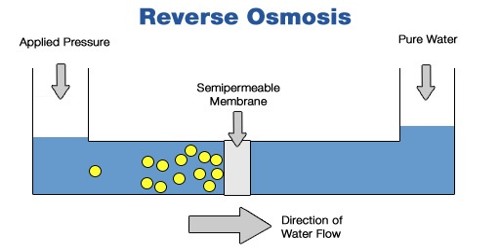Melatonin
Definition: Melatonin is a hormone, that’s made by the pineal gland in the brain, it helps control our daily sleep-wake cycles. The most well known of its functions is the control of circadian (daily) rhythms. Typically, melatonin levels start to rise in the mid-to-late evening, after the sun has set.
As a medicine, it is used to treat insomnia; however, evidence of benefit is unclear. One review found the onset of sleep occurred 6 minutes faster with use but found no change in total time asleep. It is most commonly available in pill form, but melatonin is also available in forms that can be placed in the cheek or under the tongue. This allows the melatonin to be absorbed directly into the body.
Side effects from supplements are minimal at low doses. In animals, melatonin is involved in the entrainment (synchronization) of the circadian rhythms including sleep-wake timing, blood pressure regulation, seasonal reproduction.
Here are some key points about melatonin –
- Initially, melatonin was extracted from cow pineal glands.
- Melatonin supplements cause very few side effects, but they can interact with other drugs.
- The primary medical use for melatonin is to treat sleep disorders.
Melatonin was discovered in 1958. Melatonin is sold over the counter in the United States, Canada, and some European countries. In other countries, it may require a prescription or be unavailable. A month’s supply costs about 1 USD as of 2017.

Functions and Uses of Melatonin: Of melatonin’s many functions, the best understood is the part it plays in maintaining circadian rhythms. Melatonin’s main job in the body is to regulate night and day cycles or sleep-wake cycles. Darkness causes the body to produce more melatonin, which signals the body to prepare for sleep. Light decreases melatonin production and signals the body to prepare for being awake. Some people who have trouble sleeping have low levels of melatonin. It is thought that adding melatonin from supplements might help them sleep.
Human melatonin production decreases as a person ages. Also, as children become teenagers, the nightly schedule of melatonin release is delayed, leading to later sleeping and waking times. It occurs at high concentrations within a mitochondrial fluid, greatly exceeding the concentration of melatonin in blood plasma. Due to its capacity for free radical scavenging, indirect effects on the expression of antioxidant enzymes, and its significant concentrations within mitochondria, a number of authors have indicated that melatonin has an important physiological function as a mitochondrial antioxidant.
People commonly use melatonin for sleep disorders, such as insomnia and jet lag. Unlike with many sleep medications, people are unlikely to become dependent on melatonin, have a diminished response after repeated use (habituation) or experience a hangover effect.
Melatonin is a safer alternative than clonazepam in the treatment of REM sleep behavior disorder—a condition associated with the synucleinopathies like Parkinson’s disease and dementia with Lewy bodies. It reduces the time until onset of sleep and increases sleep duration in children with neurodevelopmental disorders.

Research on melatonin use for specific conditions shows:
- Jet lag
- Circadian rhythm sleeps disorders in the blind
- Delayed sleep phase (delayed sleep-wake phase sleep disorder)
- Insomnia
- Shift work disorder
- Sleep-wake cycle disturbances
- Reducing anxiety before surgery
- Jaw pain (temporomandibular disorder)
- Low blood platelets (thrombocytopenia)
Recent research is also exploring whether melatonin might improve cognitive impairment in people with Alzheimer’s disease and prevent cell damage associated with amyotrophic lateral sclerosis (ALS).
Effects of Melatonin: The discovery that melatonin is an antioxidant was made in 1993. The first patent for its use as a low-dose sleep aid was granted to Richard Wurtman at MIT in 1995.
Melatonin has very few side effects. A number of clinical trials have investigated short-term, low-dose, and up to 3-month usage and found no adverse events. However, some side effects have been reported, such as:
- headaches
- nausea
- dizziness
- drowsiness
- irritability
Some studies on older adults noted side effects that include:
- restless legs
- skin pigmentation
- thrombosis (blood clots)
Because melatonin may affect the reproductive system, it is not recommended for use among people who wish to become pregnant or breastfeeding mothers.
Information Source:
















